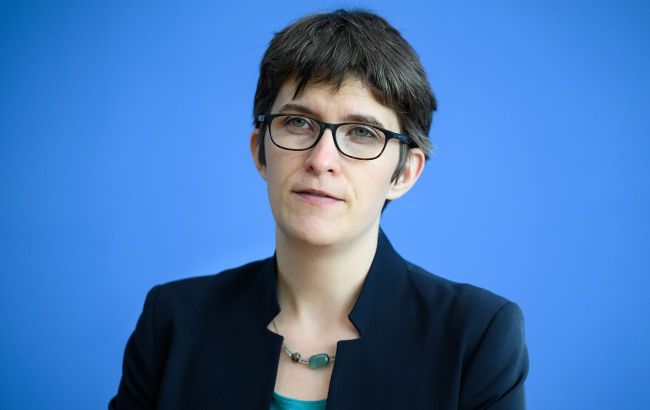EU considering abolishing veto power on enlargement: Just over half of member states support reform
 Anna Lührmann, Minister of State for Europe at the German Federal Foreign Office (Getty Images)
Anna Lührmann, Minister of State for Europe at the German Federal Foreign Office (Getty Images)
The European Union is working to ensure that no member state can block the EU enlargement negotiations by using its veto power. More than half of the EU states support this reform, as Anna Lührmann, Minister of State for Europe at the German Federal Foreign Office, told RBC-Ukraine.
"We are working very studiously on the reform of the enlargement process to also ensure that technical intermediate steps in the enlargement process are no longer subject to veto, and we are doing that. We have already received a lot of support from other EU members," Lührmann said, adding that about 15-16 EU countries already support this idea.
But the implementation of this initiative will still require a unanimous decision of the EU members, the minister adds.
"I am very optimistic that at some point we will be able to make progress," Lührmann said.
According to the German minister, Hungary's upcoming EU presidency, to begin on July 1, will not harm the negotiations with Ukraine.
"We expect the Hungarians to do what good presidencies should do - to be honest mediators. The rules for the enlargement negotiations are very clear, so I expect Hungary to follow these rules," she said.
The minister notes that the current reboot of the EU leadership after the recent European Parliament elections will not delay the start of negotiations with Ukraine.
"Negotiations will start right on Tuesday (June 25 - ed.), because after we start accession talks, we need to hold a lot of discussions at the technical level, and they will start immediately. There is no need to wait for the European Commission. I am confident that this will happen very soon," the minister said.
Blocking of Ukraine's EU accession
Last December, Ukraine received the green light to start accession negotiations with the EU. The bloc made correspondent decisions, including the approval of the negotiation framework.
However, Hungary blocked this decision several times, allegedly because of claims about Ukraine's policy toward national minorities.
At the same time, Budapest had no complaints about the start of accession talks for Moldova.
Recently, it became known that the EU ambassadors had approved the negotiation framework for Ukraine's accession to the bloc. Negotiations will begin on June 25.
Hungary supported the beginning of negotiations on Ukraine's accession to the European Union because Kyiv "satisfied Budapest's demands."

